What to Feed a Child With Vomiting
Both breastfed and bottle fed toddlers do vomit at some point or another. Vomiting is very unpleasant for kids but it is rarely dangerous. Unwell children vomit more often as any illness slows down the emptying of stomach and the contents retained are regurgitated.
It is extremely important to keep the sick child well hydrated. Toddlers tend to get dehydrated very quickly and in order to prevent this it is necessary to give them appropriate food, especially fluids.
What to Feed Toddler After Vomiting
1. Clear Broth
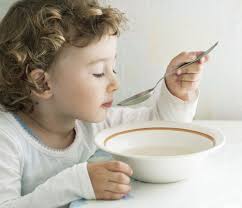
The biggest concern when any child develops diarrhea or vomiting is to prevent dehydration. Clear broth is very helpful to restore the fluid and electrolyte balance and it calms down the irritated stomach. Encourage your toddler to sip the chicken soup in small quantities.
2. Low-Fiber Foods
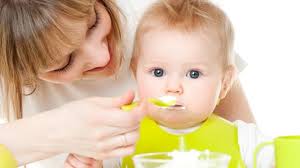
According to latest research, low fiber foods help to bind the stool and ease diarrhea effectively. Foods with a high fiber content increase the stool bulk and can aggravate diarrhea. The best thing to give them is toast, cereal without adding milk or noodles and pasta. Kids like these and they are easy to digest with an upset stomach.
3. Electrolytes
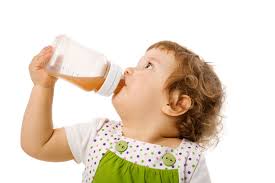
Kids not only loose fluids with vomiting and diarrhea but also important electrolytes like sodium and potassium. You can give them oral re-hydrating solution to replenish these, but talk to the pediatrician first to check what dose will be appropriate for your child.
4. Bland Foods
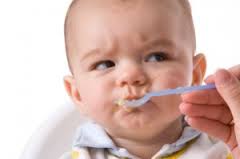
When a child is unwell they do not eat properly and it becomes a dilemma with what to feed toddler after vomiting. You can give them boiled rice, backed potatoes, plain toast or applesauce in small quantities. These will provide essential calories but wouldn't aggravate vomiting or diarrhea.
5. Fluids
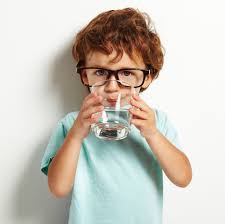
To prevent dehydration and replenish the lost electrolytes and calories in a vomiting toddler, it becomes essential to give plenty of fluids to the child, especially if diarrhea is also present. Wait for half an hour to an hour after the vomit and then encourage them to sip small amounts. Do keep on trying even if they feel nauseous.
More Tips to Follow
Foods to Avoid
You need to be very careful about what to feed toddler after vomiting. Try to avoid giving them any greasy or fatty food, these types of food can irritate the lining of the stomach and can aggravate the symptoms of diarrhea and vomiting. Milk, dairy products and spicy or seasoned foods should also be avoided for some time. Drinks, sweets and beverages with a lot of sugar or caffeine like soda or chocolate can lead to worsening of symptoms; these also suppress the immune system and make recovery slower.
Getting Back to Normal Diet
Usually the appetite returns as soon as the vomiting settles and kids do start eating normally. The best thing is to give them their normal food as soon as possible. This approach is also recommended by American Academy of Pediatricians. Many people still give their kids the BRAT diet (Bread, Rice, Applesauce and Toast) after any stomach upset, but according to latest research giving them the healthy normal food can shorten the recovery time and can replenish the lost nutrients more quickly.
You can give them rice, bread, cereal, fruit, vegetables, lean meat and yogurt but do not give them any fried or spicy stuff. It is ok if your toddler eats very little for a couple of days, just make sure to keep them hydrated and give lots of liquids.
You can restart giving milk when the symptoms are settled, the best thing is to discuss with the pediatrician because in some cases the best thing is to avoid milk and dairy for a few days.
When to Take Your Toddler to the Doctor
Vomiting in kids is rarely alarming and gets better by itself. However, there're cases when a visit to the doctor are necessary after deciding what to feed toddler after vomiting. Contact the pediatrician immediately if any of the following is present:
- If the vomiting does not get better within a day or twenty four hours. In some conditions this can be harmless but the best thing is to discuss with the doctor.
- If any signs of dehydration appear your toddler needs urgent medical attention. These include decreased urine output, lethargy, dry lips, excessive crying without tears or darker colored urine.
- Take your child to the hospital immediately if the vomit contains significant amount of blood or coffee ground material. A little amount of blood in vomit can be ignored as it can be due to excessive retching or a small cut in the mouth or even nose bleed but if there is a lot of it, urgent medical advice is needed.
- If the skin or eyes look yellow or jaundiced and there is any swelling or pain on the right side of upper abdomen, the vomiting can be due to hepatitis and in these cases the child appears very lethargic and tired. This required immediate evaluation.
Source: https://www.newhealthadvisor.org/what-to-feed-toddler-after-vomiting.html
0 Response to "What to Feed a Child With Vomiting"
Post a Comment